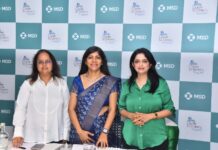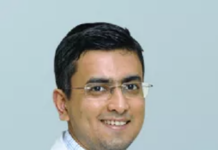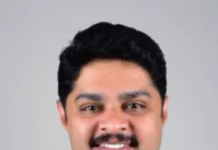New Delhi, February 08, 2018: Team Bleetech with their solution on low-cost encyclopaedia for hearing impaired emerged winners of the Enable Makeathon2.0 organised by the International Committee of the Red Cross (ICRC) and its partners winning USD 25,000. With this technology persons with hearing impairment can ask questions in sign language using their phones and receive responses. Team Game Able came second for gesture recognition-based control software that provides access to persons with disabilities enabling them to play video games like their peers, while Team Nonspece merged third for developing a rapidly adjustable below the knee prosthetic system that is dynamic, affordable, lightweight. They won USD 15,000 and USD 10,000 respectively.
A panel of judges including representatives from the National Institute of Designand influencers from the disabilitysector announced the three winners at an exciting ceremony in Delhi today. The teams underwent a rigorous competitive process of over 60 days starting from their initial shortlisting to a co-creation camp for mentoring and developing their ideas and the final Demo Day.
Social Alpha, an incubation cell, announced its three-month incubation support for four Enable Makeathon teams – Amparo, Nonspec, Torchit and GameAble.
After receiving almost 100 entries the ‘Demo Day’ of the ‘Enable Makeathon Challenge’ sawnine teams from India and around the world demonstrating their innovative solutions to address the needs of persons with disabilities in low resource environments. The second edition of EM was held simultaneously in India and the United Kingdom in partnership with the Global Disability Innovation Hub, London.
Mr. Rao Inderjit Singh, President Paralympic Committee of India (PCI) who delivered the keynote address, said, “The government is committed to making social inclusion a reality. We have to ensure that we remove the stigma around persons with disabilities and programmes such as the Enable Makeathon will help do this.”
Jeremy England, Head of the Regional Delegation for India, Nepal, Bhutan and the Maldives in his welcome address, said, “We’re excited about what the teams have come up with and we can see them really making a difference with their innovation solutions. Inclusion, collaboration and impact are at the heart of the Enable Makeathon. It is about looking for solutions with persons with disabilities. Products based on listening to the needs of PWDs will be the designs that can help us all. Collaborating with partners to get these finalised and delivered to people in need is the impact we aim for.”
 Speaking at the event, Tarun Sarwal, Head of Innovation, ICRC said, “Enable Makeathon is a unique social movement. It brings together a multidisciplinary team of experts with persons with disability to find solutions for the real challenges that they would like to address. Through the Enable Makeathon Challenge, we wanted to provide a platform for innovators to use their expertise in building assistive locomotive devices that would help people with disabilities living in rural India. Just like the first edition of Enable Makeathon, the Enable Makeathon 2.0 has been a resounding success with talented teams across India and the world participating and presenting different challenges that deliver effective, inclusive solutions that are much needed for persons with disabilities.”
Speaking at the event, Tarun Sarwal, Head of Innovation, ICRC said, “Enable Makeathon is a unique social movement. It brings together a multidisciplinary team of experts with persons with disability to find solutions for the real challenges that they would like to address. Through the Enable Makeathon Challenge, we wanted to provide a platform for innovators to use their expertise in building assistive locomotive devices that would help people with disabilities living in rural India. Just like the first edition of Enable Makeathon, the Enable Makeathon 2.0 has been a resounding success with talented teams across India and the world participating and presenting different challenges that deliver effective, inclusive solutions that are much needed for persons with disabilities.”
The EM2 movement is an initiative of the ICRC in collaboration with GDI Hub and with the support of several partners including V-Shesh, Applied Singularity, University College London, Global Shapers Bangalore, Global Humanitarian Lab, Project DEFY, The Association of People with Disability, Innovation Alchemy, Indian Institute of Technology Roorkee, IKP Eden, Indian Institute of Management Bangalore, Formulate IP and the Indian Red Cross Society.
For the last 60 days, teams comprising of persons with disabilities, technology and design experts, the scientific and innovation community, and mentors have been working round the clock to create affordable gadgets and assistive devices that aim to make persons with disabilities more independent and self-reliant.
Corporate Comm India(CCI Newswire)

























